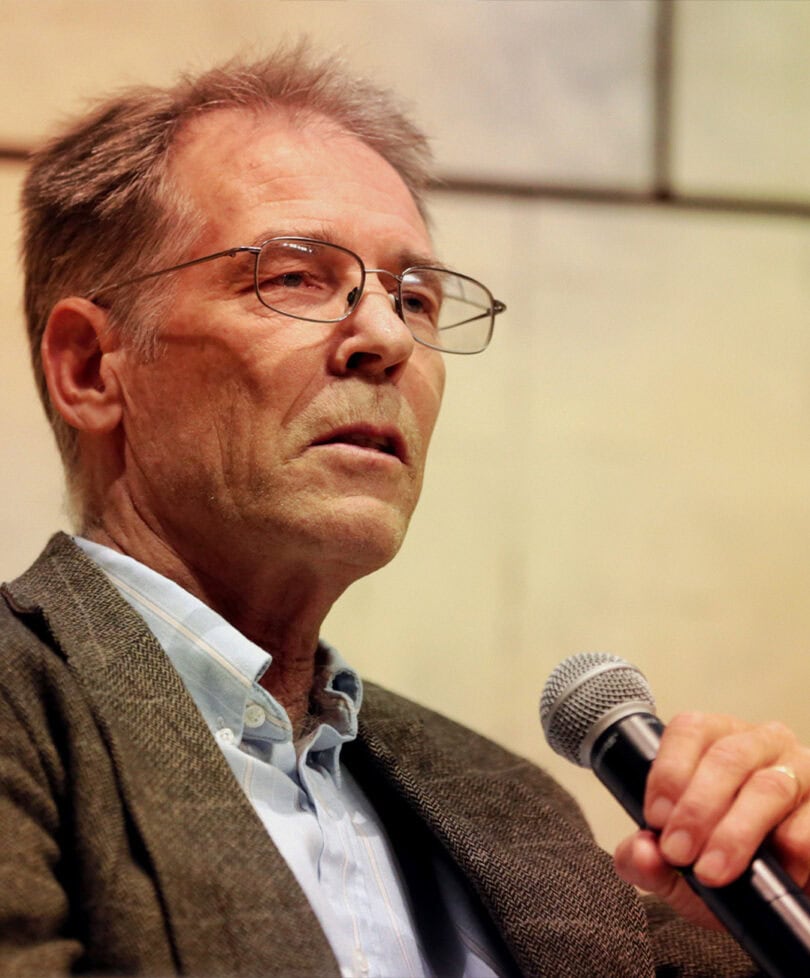
The future, accelerated: a message from Sci-Fi author Kim Stanley Robinson
Science fiction has long fascinated technologists, from Silicon Valley moguls to European policymakers.
Kim Stanley Robinson is an author who has had a big impact on the modern form of this genre. His works, including the Mars trilogy and The Ministry for the Future, are renowned not only for their imaginative storylines but also for their realism and scientific grounding – it’s sci-fi, but with a massive emphasis on the sci. His stories explore the future impact of technologies already being discussed and developed today.
It’s little surprise, then, that Robinson is a major source of inspiration for us at the Centre for Future Generations.
Our founders Laurens de Groot and Steven Schuurman, both embedded in the tech world, launched CFG a year after The Ministry for the Future was released in 2020. Like Robinson, they recognised the extraordinary potential of emerging technologies like AI, climate interventions, and biotechnology, but also the risks they posed to humanity’s future.
We were fortunate enough to sit down with Kim Stanley Robinson to discuss this very topic. The conversation was a wide-ranging and cautiously optimistic view of where humanity stands today.
The future, he explains, is being written right now, through choices made today amid blistering technological advance and a chaotic international system. Those choices can steer us away from disaster and toward a more just, livable planet.
“This sense of being in a race where the bad and the good are both accelerating is really, I think, the story of the 2020s.”
Robinson lays out how AI could transform policymaking. He describes the potential for citizens, supported by generative AI tools, to co-develop policy proposals – augmenting digital consultation processes that countries like Taiwan have already operationalised. This “rapid-response governance,” as he calls it, could be a technological upgrade to democracy but also an opportunity for malignant actors to “pervert it from the top”.
He dives into the implications of climate intervention. From carbon drawdown to solar radiation management, Robinson acknowledges that we’re likely heading into an age of “technologies of desperation”. These radical tools could have been plucked straight from one of his stories, but they may well become a reality as climate change intensifies.
“The EU has to take the lead and be the model of cooperation for the greater good.”
What binds these ideas is a single, vital thread: governance.
The rapid evolution of new technologies, more powerful than humanity has ever seen before, leaves many open-ended questions: how will they impact society? Who will be authorised to use them? Will they be used for equality or exploitation? Governance means finding answers today and acting accordingly. Robinson insists on the importance of this and points to some encouraging examples, from civil society organisations to the EU.
That’s why CFG exists. Like Robinson, we believe that governance – international, well-informed, ethically grounded, and long-term in scope – is the only force that can harness technology “for the greater good” of future generations. Our mission is to help governments anticipate the societal impacts of rapid technological change, to help them implement, enforce, update, and future-proof their policies.
The story of the 2020s is still being written. And today’s policies will determine how it ends.
Watch the full conversation to hear Robinson’s take on the choices ahead and why he’s still optimistic we can get our act together.
This conversation was recorded for our inaugural annual conference in 2024. If you are interested in attending the 2025 edition, please find more information here.
